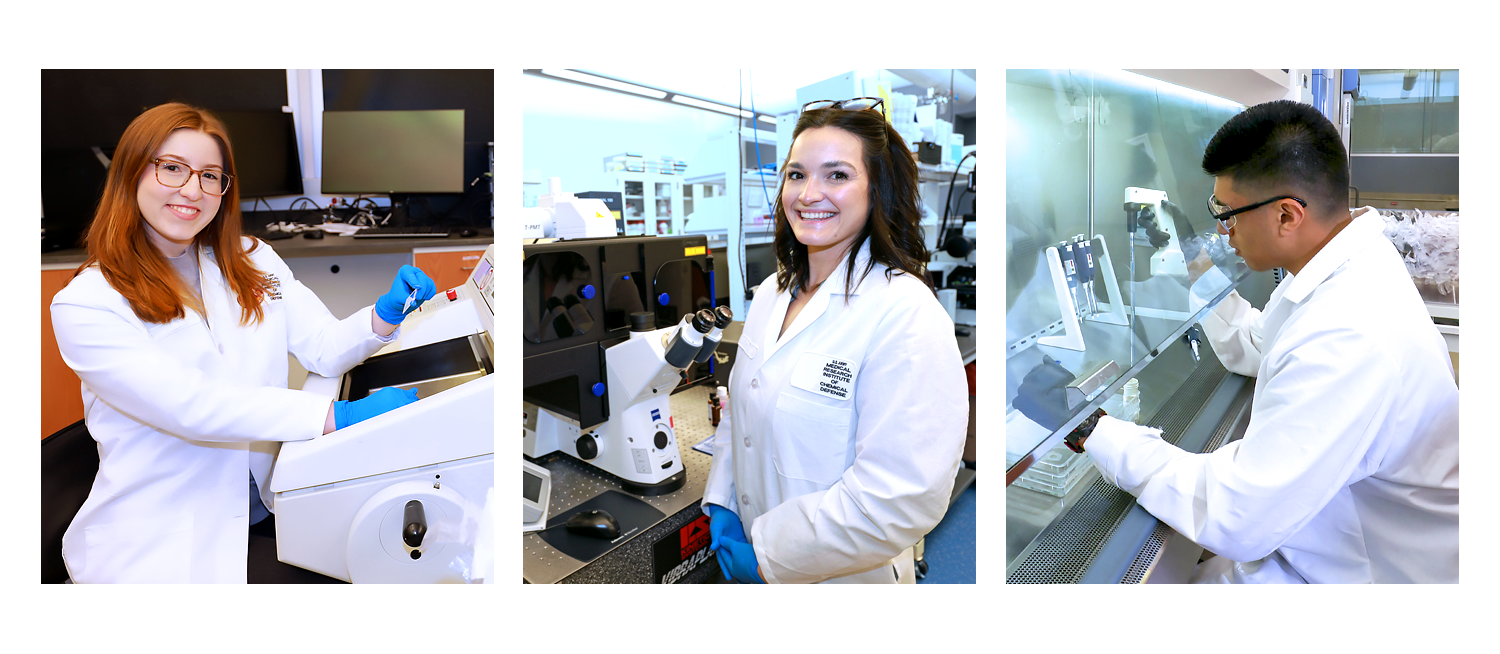Employment
USAMRICD is Recruiting Research Scientists!
If you are interested, please see USAJOBS: https://www.usajobs.gov/job/729413300.
What are we looking for? We need Research Scientists to serve as Principal Investigators leading a team conducting basic and applied research to develop medical solutions for chemical, biochemical, and other acute non-kinetic battlefield injuries.
USAMRICD Principal Investigators develop research ideas, write research proposals to various funding agencies (e.g., Defense Threat Reduction Agency (DTRA), National Institutes of Health (NIH), Congressionally Directed Medical Research Program (CDMRP), Combat Casualty Care Research Program (CCC-RP), etc.), prepare budgets, and lead a research team executing research plans in line with established milestones and deliverables. Our research teams perform research endeavors from concept to definitive pre-clinical studies utilizing in silico, in vitro, ex vivo, and/or in vivo models. These research efforts culminate in the development of medical countermeasures including both therapeutics and devices, as well as knowledge products (i.e., manuscripts, reports, presentations, etc.), and methodologies that advance medical treatments for chemical, biochemical, and other acute non-kinetic battlefield injuries. Our research projects are diverse and take a multi-disciplinary teaming approach to cover scientific fields such as toxicology, neuroscience, pharmacology, biology, biochemistry, chemistry, molecular biology, animal behavior, physiology, cell biology, biotechnology, bioinformatics, biomedical engineering, immunology, and pathology. We are looking for motivated, innovative, and team-building researchers dedicated to mission-driven projects that will protect our nation.
MRICD's work force of over 300 people is a mix of civilian, military, contractor personnel. Among the research specialties represented among the Institute's research staff are synthetic, analytical and medicinal chemistry, inhalation toxicology, biochemistry, pharmacology, biomedical and chemical engineering, physiology, psychology, and cellular and molecular biology, as well as other bioscience disciplines. While scientific and technical personnel make up a large percentage of our work force, other functions, including budget administration, security, safety/surety, human resources, logistics,maintenance and consultation, are performed as well.



